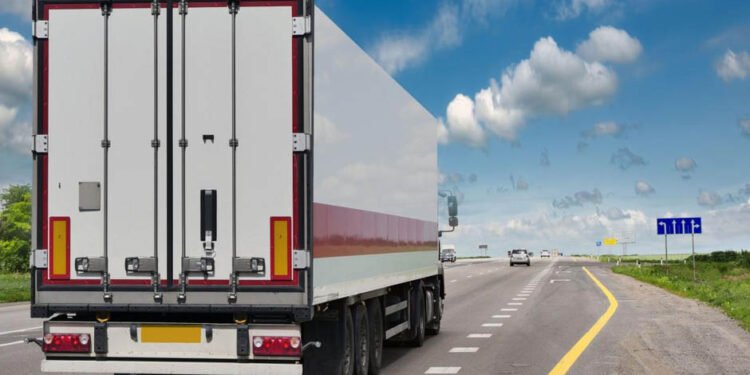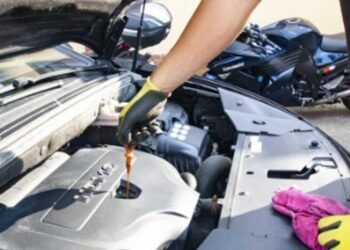Full truckloads (FTL) commonly refer to shipments of goods that require the total capacity of a truck or trailer. The service of Full Truckload is advised for shipments with 10-22 pallets, fragile goods, and even high-risk cargo. FTL shipment is preferred for many business over less than truckload. Full truckloads are faster, more dependable, and way more secure.
Understanding Full Truckloads in Detail
Full truckloads are used when larger quantities of goods have to be moved in a single shipment that cannot be consolidated in a shared truckload. Several factors must be considered when going with a Full Truckload for shipment and carrier purposes. The three main factors are:
- Goods volume: A full truckload is often used to carry or transfer more significant volumes of goods that can easily take up the entire truck or trailer space. If not, the shippers may end up paying for the unused space. Dry van trucking is generally the most common form of freight transportation for full truckloads. “Dry van” is the term used to refer to the type of vehicle that is used to transit cargo or goods. This is the kind of truck you often see on the highway being used to tow enormous storage containers.
- Transit time: The time the truck or trailer takes to transfer the goods or cargo is another factor to consider when transporting goods with Full Truckload. Full truckloads are commonly direct, so the transit time is usually faster than LTL or other transportation modes.
- Cost: Full truckloads are usually more expensive as the entire truck or trailer is used exclusively for the shipment. But, it can be cost-effective if the whole trailer space is utilized.
Carrier selection is a crucial step in Full Truckloads
Selecting a suitable carrier for the shipment’s purposes is crucial if one wants the whole transportation of goods to take place smoothly. Your chosen carrier will provide the expertise, quality personnel, facilities, and equipment necessary to safely, properly, and lawfully transport freight by motor vehicle for hire.
The capacity to deliver—your shipment reaching its destination securely, promptly, and in excellent condition—is a carrier’s most crucial quality. The transportation company must consistently maintain this balance between speed and dependability.
Functionality of Full Truckloads
Booking of shipment: Booking the load with a carrier is the first step in the process of FTL shipment. During the booking process, details such as the origin and destination of the shipment, shipment size, weight, and any details regarding any specialized equipment are provided.
Pickup: After the booking, the carrier will schedule a pickup time and location. The shipment should be ready for pickup and packed securely to ensure no chance of damage during transit.
Transit of shipment: The shipment is transported by the carrier from the origin to the destination. The carrier must be equipped with tracking technology to provide updates regarding the delivery of cargo and any delays during the transit.
Delivery: Finally, when the shipment is delivered, it is unloaded and inspected for damage or loss.
Can dry van trucks be used for Full Truckloads?
Van Logistics 53′ is the most commonly used for full truckloads. Dry vans ensure the shipment is secure and not exposed to external climate conditions that may cause damage to the goods in transit. Each dry van can haul up to 45,000 lbs. This makes dry vans the industry standard for moving non-perishable goods and cargo on local and over-the-road lanes.
Dry van trucking is way more cost-effective than reefer or several other modes of transportation. Also, unlike reefers, dry vans have no climate control, so they are perfect for transporting goods that are not sensitive to temperature.
Now, let’s discuss some goods that are most commonly transported as Full Truckloads (FTL):
- Plumbing materials: Due to their length and bulk, various types of pipes, including copper, PVC, and galvanized steel, are frequently transported as FTL. To plumbing supply stores and building sites, elbows, tees, valves, and other plumbing fittings and fixtures are often shipped as FTL.
- Electronic devices: Computers and laptops, electrical items like computers, laptops, and servers, manufacturers and retailers rely on FTL shipping. Goods like televisions, video game consoles, and audio equipment are often sent as FTL to stores and distribution centers.
- Clothing: FTL shipments are used by clothing retailers and fashion labels to deliver large orders of apparel like dresses, shirts, pants, and accessories. To create garments, rolls of fabric and textiles are shipped as FTL to garment makers. Fashion businesses commonly use FTL shipping for prompt delivery to keep up with the demands of shifting seasons and trends.
- Tires: Tire manufacturers and distributors transport passenger and commercial truck tires to tire dealers and retailers as FTL. Tire stores are guaranteed to have a ready supply of inventory thanks to the adequate FTL transportation of large volumes of tires.
- Furniture and household goods: Furniture items sometimes require FTL transportation due to their size and weight to ensure safe delivery to customers or retailers. Due to their size and weight, large household appliances, including refrigerators, washing machines, and ovens, are carried using Full truckloads. Lamps, rugs, and other items could be transported to furniture and home décor retailers such as FTL.
Wrapping up!
Full Truckloads are a convenient and cost-effective mode of transportation for parties looking to ship large quantities of cargo in a direct shipment. Full Truckloads are direct, and there are no transfers, so the chances of any damage or loss during transit are minimized.
Goods such as plumbing materials, construction materials, furniture, beverages, and tires can be easily transported as Full Truckloads.












